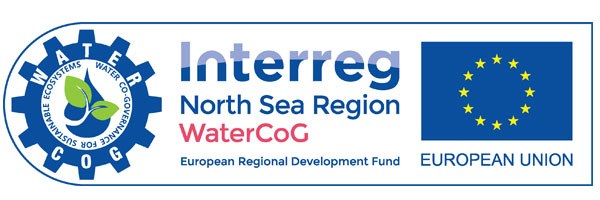
Press release: The Rivers Trust responds to today’s announcement from Defra regarding plans for sewer storm overflows
22/01/21
The Rivers Trust has been campaigning for an end to sewage pollution in rivers and lakes particularly intensively over the past two years, and worked closely with Philip Dunne MP to draft the Sewage (Inland Waters) Bill. Whilst we are disappointed that the Bill’s second parliamentary reading will not happen today, we are encouraged by the announcement that Defra will work closely with Mr Dunne and the Storm Overflows Taskforce to eliminate harm from storm overflows, and increase transparency with regards to their use.
A press release issued by Defra today commits to compile annual data from water companies on the use of storm overflows into an annual report, as well as to making real-time storm overflow data available year-round for all designated bathing waters. The long-term goal to eliminate harm from sewage discharges is described as a generational endeavour.
Mark Lloyd, CEO of The Rivers Trust, said: “Ending pollution from sewage overflows would be a great boon for people and wildlife. The current level of spills is unacceptable and has contributed to the UK failing to meet water quality targets. Today’s announcement by DEFRA takes an important step towards greater transparency by government and the water companies, and gives better public access to information. However, it falls short of explaining how government will meet the objectives of the taskforce in the long term. The Bill required progressive improvements in existing infrastructure, revoked the automatic right to connect for new developments and required clear labelling on wet wipes to prevent blockages. These are critical measures to address root-causes of our overwhelmed sewers. We want to see how these issues will be addressed in other legislation.
“We urge government to take bold decisions after these discussions to make our water infrastructure much more resilient. Solving this problem cannot be achieved by water companies alone, nor by simply monitoring the problem more transparently; we need a holistic approach that involves a wide range of organisations and sectors to manage storm water and waste more intelligently. We would like to see the widespread deployment of nature-based solutions with multiple benefits for the environment and society and adoption of a catchment-based approach to decision-making.”
Christine Colvin, Director for Communications with The Rivers Trust said: “The past 12 months have seen a significant change in discourse around the state of inland waters. Since June, The Rivers Trust’s interactive map showing untreated sewage discharges in 2019 has been viewed more than 116,000 times. Along with partner organisations from the Blueprint for Water, we joined the #EndSewagePollution Coalition with Surfers Against Sewage to raise public awareness of the issue. Nearly 5,000 people wrote to their MP asking them to back the Sewage (Inland Waters) Bill, highlighting how many CSOs had spilled in their constituency. We are extremely grateful for the support of the 106 MPs, from all political parties, who have publicly expressed their support.
"We are encouraged by the step towards greater transparency by government, but we need to see a clear commitment to rethink and re-engineer our drainage systems, with nature, to ensure we are more climate-resilient and reducing the harm currently evident in our rivers. Better access to CSO spill data takes us one step forward in creating healthier rivers, but missing the reading of Dunne’s Bill is two steps back. We will do all we can to keep up the momentum and make sure we keep moving towards rivers fit for people and wildlife.”
Did your MP commit to support the Sewage Bill?
Blue hearts represent the constituencies where MPs committed to support the Sewage (Inland Waters) Bill in Parliament.
